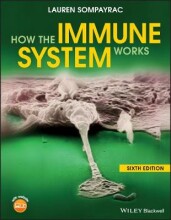L9 Cardiovascular pharmacology
13 important questions on L9 Cardiovascular pharmacology
Arrhythmias (dysrhythmias), main forms are
- atrial fibrillation and SVT
- ventricular tachyarrhythmias and ventricular fibrillation
Bradyaarhythmias: (slower)
- heart block (different types)
- asystolie arrest
- etc.
Secondary risk factors of IHD
- Obesity
- diabetes
- excess alcohol
- lack of exercise
- oral contraceptives
- personality type
- renal disease
Beta-blockers in angina pectoris
- Reduce myocardial oxygen demand
- cardioselective beta-blockers are most effective
- minor side-effects
- je bloeddruk zal niet hoger geraken dan bv 70 waardoor je er last van kan gaan krijgen tijdens het sporten
- Higher grades + faster learning
- Never study anything twice
- 100% sure, 100% understanding
Calcium antagonists in angina pectoris
- Used in prophylaxis
- reduce after load and therefore myocardial oxygen demand
Major causes of heart failure
Inadequate tissue perfusion form a failing pump, volume overload
Clinical sings for heart failure
- Oedema (fluid retention)
- Dyspnoea (breathlessness)
- Cyanosed lips and face
Non drug therapy; what can you do
- Sodium limitation
- avoid large amounts of fluid
- lose weight if indicated
- avoid alcohol
- mild activity
Drugs for heart failure
- ACE inhibitors
- inhibit renin-angiotensin-aldosteron system
- diuretics
- increase natriuresis
- beta blockers
- inhibit sympahtetic nervous system
- digoxin
- increase cardiac contraction force
- spironolactone
- inhibit ADH
What are the effects of digoxin
- Increases cardiac output
- decreased sympathetic tone
- increased urine output
- decreased renin release
- does not prolong life
- also effects electrical activity - decreased conduction thru AV node, decreases automaticity of SA node
What are the adverse effects of digoxin
- Dysrhythmias
- Toxicity - very narrow therapeutic index - hypokalemia makes it easier for toxicity to occur
- GI- disturbances
- Fatigue
- Visual disturbances
What are the consequences of hypertension
- You do not feel it, but you are at risk
- heart disease, kidney disease, blindness, stroke
- virtually no symptoms
- goal of treatment - systolic < 140 and diastolic < 90
Beta - blockers what is their mechanism of action
- Reduce cardiac output
- inhibit renin release, AT-II and aldosterone production, and lower peripheral resistance
- may decrease adrenergic outflow from the CNS
What is the mechanism of action of diuretics
- Blocking reabsorption of sodium and chloride
- then water will stay in the nephron also
- diuretics that work on the earlier nephron - have greatest effect - since able to block more Na and Cl reabsorption
The question on the page originate from the summary of the following study material:
- A unique study and practice tool
- Never study anything twice again
- Get the grades you hope for
- 100% sure, 100% understanding






























